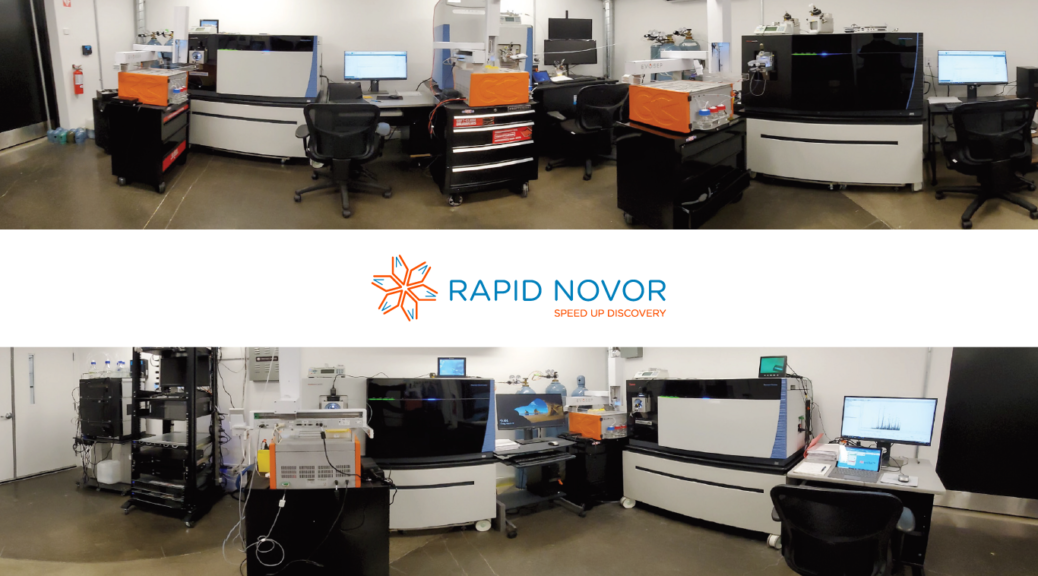[ad_1]

RAPID NOVOR Mass Spectrometry Lab
This is the first time in the world that animal polyclonal antibodies have been de novo sequenced successfully purely from protein.
KITCHENER, Ontario (PRWEB)
May 27, 2021
Rapid Novor Inc., the world’s leader in antibody protein sequencing using mass spectrometry, announced today that it has reached a major milestone in the life sciences industry by being the first to successfully sequence polyclonal antibodies directly from proteins without DNA sequencing data. The team sequenced a pool of antibody proteins purified from the blood of immunized rabbits using only proteomics.
This remarkable feat represents a successful validation of Rapid Novor’s novel antibody discovery platform utilizing REpAb® sequencing technology. The results of the technology are already helping to develop new diagnostic tests and will be utilized to establish novel antibody therapies.
This is another major milestone of Rapid Novor’s R&D in decoding the immune system by sequencing the antibody proteome. The antibody proteome encompasses all antibodies expressed in the blood and is hence a more accurate representation of the functional immune response repertoire, unlike the genome, which contains a relatively static set of instructions for protein expression.
“This is the first time in the world that animal polyclonal antibodies have been de novo sequenced successfully purely from protein. ” said Mingjie Xie, CEO of Rapid Novor Inc. “Decoding the proteome is critical to enabling next-generation therapeutics, and to fully understand our bodies response to diseases. Without looking at the final products of the immune response, it’s not always clear what the body has chosen as the best tools to fight off disease.” The company’s proteomics-based antibody discovery technology unlocks this previously understudied area, enabling an entirely new way to explore the immune system. In collaboration with biotech companies around the world, Rapid Novor’s REpAb® platform allows discovery of previously “unseen” antibodies that can be used to treat diseases for which treatments have been difficult to find.
Matt Pope, VP of Client Services of SISCAPA Assay Technologies Inc. (Victoria, British Columbia) explained; “Rapid Novor was tasked with finding highly specific, high affinity antibodies against an important target- and they delivered powerful antibodies fit-for-purpose. Such antibodies are not easily obtained yet the Rapid Novor approach proved immediately successful, despite our time-constrained and stringent demands.”
Rapid Novor continues to work with companies in the biotech and pharmaceutical industries to tackle some of the most challenging healthcare problems. By developing specific antibody reagents in oncology, vaccinology, and autoimmune disease as part of their pipeline, Rapid Novor aims to scale up their business in the coming years and grow their next-generation protein sequencing technology.
About Rapid Novor Inc.
Rapid Novor Inc., is the world’s leader in antibody protein sequencing technology. Specializing in the field of mass spectrometry-based proteomics, the team has developed the technology to directly sequence antibody proteins without needing access to the producing cell line. Located at the Kitchener-Waterloo high-tech hub, the company continues to build its technology portfolios based on over years of scientific research and inventions. The company’s mission is to advance life science for better human health with next generation protein sequencing. For more information, please visit http://www.rapidnovor.com. Follow the company on Twitter @rapidnovor or LinkedIn https://www.linkedin.com/company/rapid-novor-inc/.
About SISCAPA Assay Technologies, Inc.
SISCAPA Assay Technologies, Inc. is a protein quantitation/diagnostics company based in Washington DC and Victoria BC. that develops SISCAPA immuno-mass spectrometric assays for high-value protein biomarkers and other proteins to enable precise measurement of human proteins in clinical and other samples.
Share article on social media or email:
[ad_2]

